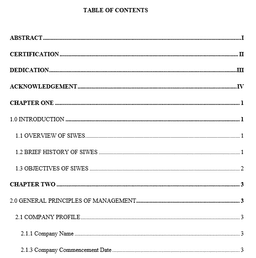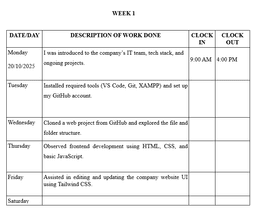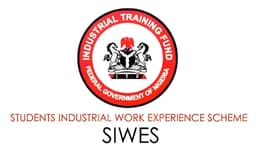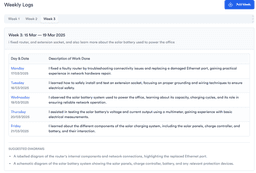Aims and Objectives of SIWES: What Every Student Should Know
Discover the true aims and objectives of SIWES (Student Industrial Work Experience Scheme) and why it's essential for every Nigerian student. Learn how it bridges the gap between theory and practice.

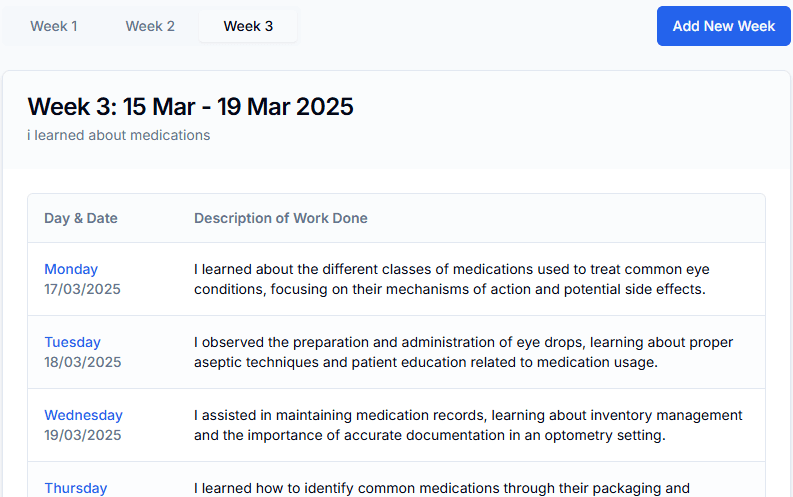
If you're a student in a university, polytechnic, college of education, or technology, chances are you've heard of SIWES — the Student Industrial Work Experience Scheme.
But beyond just “doing your IT” and submitting your logbook, what exactly is SIWES meant to achieve?
In this guide, we'll break down the real aims and objectives of SIWES, why it was created, and what you should keep in mind to get the most out of your industrial training experience.
⚡ SIWES Tools for Students 🔥
Stop struggling with your SIWES documents — use our free AI-powered generators:
📘 SIWES Logbook Generator – Instantly create weekly logbook entries.
📑 SIWES Report Draft Generator – Generate a full SIWES report draft in minutes.
🎓 Trusted by 1,000+ Nigerian students.
👉 Try them now and save hours of work!
What Is SIWES?
SIWES is a work-experience program introduced to help bridge the gap between classroom learning and real-world practice. It's coordinated by the Industrial Training Fund (ITF) and is mandatory for students in science, engineering, technology, and some social science-related programs.
The idea is simple: after gaining theoretical knowledge in school, students need practical exposure in the industry — to understand how things work, how teams operate, and how the tools they've been learning about are actually used.
Why Was SIWES Introduced?
Before SIWES was created in 1973, many employers complained that graduates lacked the hands-on skills required to be job-ready. Schools focused heavily on theory, while industries expected graduates to already know how to handle real equipment and work processes.
To solve this problem, SIWES was introduced to give students early exposure to industrial environments, tools, systems, and professional standards — preparing them for the workplace before they graduate.
Main Aims of SIWES
Let’s start with the big-picture goals. The aim of SIWES is to:
Equip students with practical skills, workplace ethics, and hands-on experience in real industrial settings to better prepare them for future careers.
It is designed to bridge the disconnect between theory and practice, making students more employable, confident, and industry-ready.
Objectives of SIWES (Breakdown)
Here’s what SIWES aims to help you achieve during your training:
1. Acquire Practical Skills
It gives students the chance to apply what they've learned in school to real-life scenarios, systems, and tools.
✅ Example: A computer science student may build APIs, manage databases, or debug real applications — not just solve assignments.
2. Gain Industry Experience
Students are exposed to the workplace environment — how teams collaborate, how meetings are run, and how deadlines are handled.
✅ You learn workplace culture, not just work tasks.
3. Learn to Handle Equipment or Tools
Many tools, machines, or software are too expensive or unavailable in school. SIWES lets you learn to use them confidently.
✅ Example: An engineering student may finally get to operate real industrial machines, CAD software, or lab equipment.*
4. Bridge the Gap Between Theory and Practice
There's a big difference between what’s taught in textbooks and what’s done in the field. SIWES helps you connect the dots.
✅ Example: A biology student can finally see how lab techniques are applied in pharmaceutical or research labs.*
5. Improve Chances of Employment
You meet professionals, make industry contacts, and sometimes even get job offers from where you train.
✅ Real experience gives your CV more credibility and helps in interviews.
6. Encourage Employer Participation in Education
SIWES promotes a stronger partnership between schools and industries, allowing employers to shape graduates into what the workforce needs.
✅ Your feedback helps your school improve its curriculum too.
🤝 Who’s Involved in SIWES?
Several bodies work together to make SIWES function smoothly:
- Industrial Training Fund (ITF) – Oversees, funds, and monitors the scheme
- National Universities Commission (NUC) – Coordinates university involvement
- National Board for Technical Education (NBTE) – For polytechnics and technical colleges
- Employers – Provide training and supervision
- Your Institution – Sends placement lists, monitors, and evaluates your performance
💡 Final Thoughts
Whether you’re an engineering, tech, science, or education student, SIWES isn’t just a formality. It’s your first real entry into the world of work.
Understanding its goals can help you take it more seriously and make the most of it.
📌 Use the opportunity to ask questions, observe processes, handle tools, and build professional habits.
You’re not just filling logbook pages — you’re building your future.
⚡ Save Time with Our Free Logbook Generator
Typing your logbook manually every week can be stressful.
Use our free SIWES Logbook Generator — just describe your role and it will create detailed entries from Monday to Friday.
✅ For all Nigerian fields (Engineering, CS, etc.)
✅ Easy to copy into your real logbook
✅ Clear, correct, and time-saving
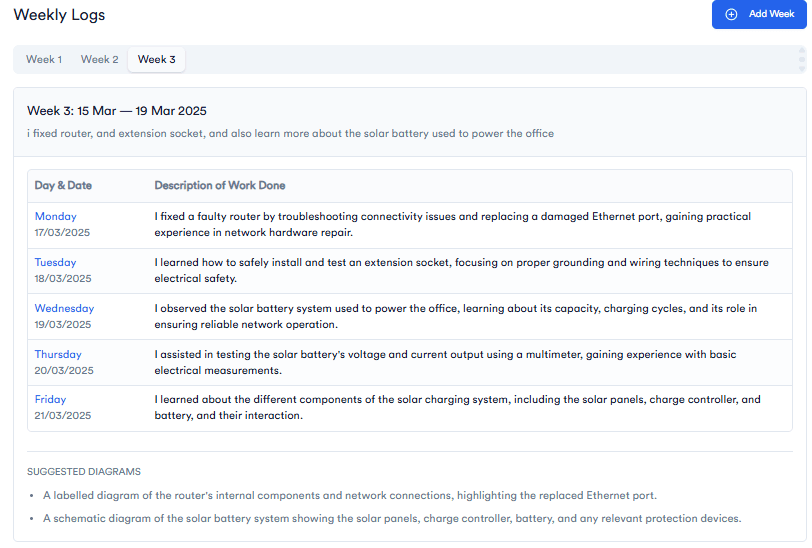
✅ Saves you hours of writing
✅ Helps you stop procrastinating
✅ Fully tailored for Computer Science students
✅ Just copy and paste into your logbook!
🎓 Used by 1,000+ Nigerian students.
